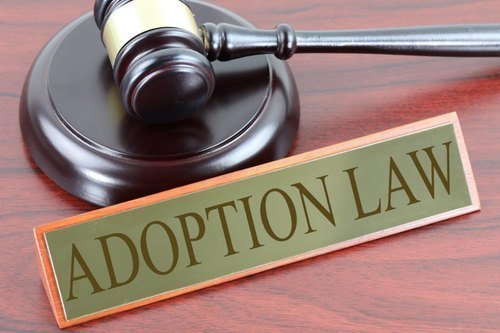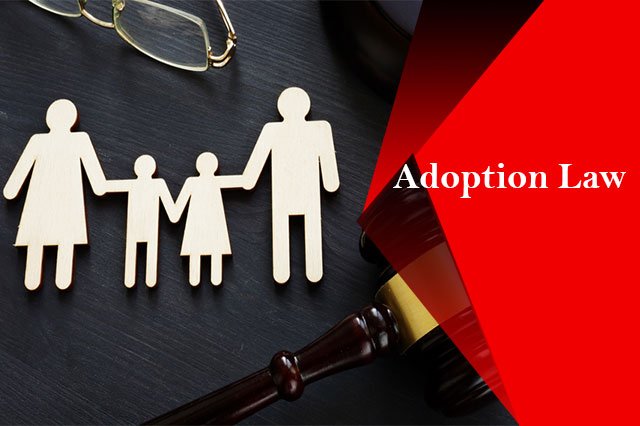- +92 302-6644789
- info@qanoonhouse.com
- Pakistan Legal Advisors, Office No. 5, 2nd Floor, Laraib Plaza, Karachi Company, G-9 Markaz.
Child Adoptions in Pakistan
The Changing Landscape of Child Adoptions in Pakistan Child adoptions in Pakistan has experienced a significant transformation, with evolving legal frameworks and streamlined processes to ensure the welfare of children. This changing landscape reflects the commitment to creating a nurturing environment for adoptive families and providing better outcomes for needy children.
Exploring the Cultural Significance of Child Adoptions in Pakistan
Child adoptions in Pakistan hold profound cultural significance, as they reflect the values of compassion, care, and community support. Adoption is seen as a way to extend one’s family and provide a loving home to a child, embracing the diversity and cultural heritage of the nation.
The Role of Adoption Agencies in Facilitating Child Adoptions
Adoption agencies are vital in facilitating adoptions in Pakistan, connecting prospective adoptive parents with children needing a loving family. These agencies provide guidance and support and ensure adherence to legal procedures, prioritizing the well-being and best interests of the child throughout the process.

Legal and Ethical Considerations in Child Adoptions
Child adoptions in Pakistan are guided by stringent legal and ethical considerations to protect the child and the rights of all parties involved. Compliance with adoption laws, thorough background checks, and informed consent are paramount to creating a secure and transparent adoption process.
Process of Matching Adoptive Parents with Children in Pakistan
Matching adoptive parents with children in Pakistan involves a thoughtful and comprehensive process. Adoption agencies and authorities assess prospective parents’ preferences, capabilities, and suitability to ensure a harmonious match, providing a nurturing and stable environment for the child.

Psychological Impact of Child Adoption
Child adoptions in Pakistan have a profound psychological impact on both the adoptive parents and the child. Adoptive parents may experience joy, fulfillment, and parenting challenges, while the child may navigate the complexities of identity, attachment, and belonging. Adequate support and understanding are crucial for a positive adoption journey.
Exploring the Challenges and Benefits of Open Adoptions
Open adoptions in Pakistan offer unique opportunities for birth parents, adoptive parents, and the child to maintain contact and share information. While open adoptions come with challenges, such as navigating boundaries and maintaining relationships, they also provide benefits like ongoing support, access to medical history, and a sense of connectedness.
Legal Services
Our Attorney

Popular Service
Provincial Tax Authorities
Misc. Services
Recent Article
Importance of Post-Adoption Support for Adoptive Families in Pakistan
Post-adoption support is vital in ensuring the well-being and successful integration of adoptive families in Pakistan. Offering resources, counseling, and guidance, post-adoption support provides a safety net for adoptive parents, helping them navigate the joys and challenges of parenthood and ensuring the child’s continued growth and development.
Inter-Country Adoptions: International Perspectives on Child Adoptions in Pakistan
Inter-country adoptions in Pakistan allow children to find loving homes abroad while fostering cultural exchange and understanding. Collaboration with international adoption agencies, adherence to legal requirements, and cultural sensitivity are essential for placing children in international adoptive families.
Role of Birth Parents in the Adoption Process
Birth parents in Pakistan play a crucial role in the adoption process, as their consent and participation are necessary for successful adoption. Providing support, counseling, and respecting their rights and well-being are fundamental to facilitating positive and ethical child adoption.
Adoption Disruptions: Challenges and Solutions in Pakistan
Adoption disruptions, though rare, can occur for various reasons, such as unexpected or failed matches. In such cases, addressing the challenges promptly, offering support to all parties involved, and exploring alternative solutions are essential to minimize the impact and prioritize the child’s best interests.


Promoting Timely and Efficient Adoption Processes in Pakistan
Timely and efficient adoption processes are crucial to minimize the waiting time for prospective adoptive parents and provide stability for children needing a permanent home. Streamlining administrative procedures, enhancing coordination between agencies, and prioritizing the child’s well-being is vital to promoting effective adoption processes.
Single-Parent Adoptions: Empowering Individuals
Single-parent adoptions in Pakistan offer opportunities for individuals to fulfill their desire for parenthood. Supporting single parents through comprehensive assessments, adequate resources, and social acceptance can empower them to provide a loving and stable environment for their adopted child.
The Role of Extended Family in Adoption Decision-making
Extended family members often play a significant role in adoption decision-making in Pakistan. Their support, involvement, and acceptance of the adopted child contribute to the success and well-being of the adoptive family. Collaboration and open communication within the extended family can foster a nurturing environment for the child.
Exploring the Influence of Religion on Adoption Practices in Pakistan
Religion plays a significant role in adoption practices in Pakistan, influencing the decision-making process, cultural beliefs, and expectations. Understanding and incorporating religious perspectives into adoption processes is crucial to ensure compatibility and respect for all parties’ spiritual values.

Adoption and Cultural Identity: Nurturing Belongingness in Pakistan
Adoption in Pakistan encompasses nurturing cultural identity, ensuring that adopted children are connected to their cultural heritage. Embracing cultural traditions, language, and customs within the adoptive family fosters a sense of belonging and preserves the child’s cultural identity.
Adoption and Mental Health: Supporting the Well-being of Adoptive Families in Pakistan
Adoption in Pakistan can impact the mental health of adoptive families. Providing comprehensive support, access to counseling, and resources for coping with adoption-related challenges are essential to promote the overall well-being and mental health of adoptive parents and their children.
The Impact of Adoption on Sibling Relationships in Pakistan
Adoption in Pakistan can profoundly impact sibling relationships within the birth family and the adoptive family. Nurturing positive and healthy sibling connections, facilitating communication, and addressing potential challenges are crucial to promoting strong and supportive sibling relationships.
Exploring the Role of Social Workers in Child Adoptions in Pakistan
Social workers play a crucial role in child adoptions in Pakistan, supporting birth parents, adoptive families, and children throughout the adoption process. They provide guidance and counseling and ensure the well-being of all parties involved, promoting positive outcomes and lasting connections.


Adoption and Special Needs: Providing Supportive Environments in Pakistan
Adoption in Pakistan encompasses providing supportive environments for children with special needs. Understanding and addressing the unique challenges, providing access to appropriate resources, and promoting inclusivity is fundamental to ensuring the well-being and development of children with special needs.
The Impact of Socioeconomic Factors on Child Adoptions in Pakistan
Socioeconomic factors play a significant role in child adoptions in Pakistan. Access to resources, financial stability, and support systems are crucial for birth parents and adoptive families. Addressing these factors ensures a more equitable adoption process and supports the child’s well-being.
Guardianship vs. Adoption: Understanding the Distinctions
Understanding the distinctions between guardianship and adoption is essential in the context of child welfare in Pakistan. While control grants temporary custody, adoption establishes a permanent legal relationship. Recognizing each option’s legal implications and responsibilities is crucial for making informed decisions.
Exploring the Role of Foster Care in the Adoption Process in Pakistan
Foster care plays a significant role in the adoption process in Pakistan, providing temporary care and support for children needing a stable home. Foster care is vital to permanent adoption, ensuring the child’s safety and well-being during the transition.
Promoting Inclusive Adoption Policies: Addressing Disability in Pakistan
Inclusive adoption policies in Pakistan strive to ensure that children with disabilities have equal opportunities for adoption. Addressing accessibility, providing support services, and promoting awareness and acceptance are integral to creating inclusive adoption policies that cater to the diverse needs of children with disabilities.
Adoption and the Education System: Fostering Inclusive Environments in Pakistan
Adoption in Pakistan intersects with the education system, highlighting the importance of creating inclusive and supportive environments for adopted children. Schools play a crucial role in understanding the unique needs of adopted students, providing necessary resources, and fostering a sense of belonging and acceptance.
The Role of Media in Shaping Adoption Practices and Perceptions in Pakistan Media plays a significant role in shaping public perceptions and understanding of adoption in Pakistan. Responsible media coverage, raising awareness, and promoting positive adoption narratives can reduce stigma, increase acceptance, and facilitate informed discussions about adoption.
Exploring the Adoption Experiences of Transgender Individuals in Pakistan
The adoption experiences of transgender individuals in Pakistan present unique challenges and opportunities. Recognizing and addressing the specific needs and rights of transgender adoptive parents and their children is crucial in fostering inclusivity, acceptance, and support within the adoption system.
Impact of Adoption on Birth Parents’ Mental Health in Pakistan
Adoption in Pakistan can profoundly impact the mental health of birth parents. Emotional support, counseling services, and resources for coping with grief and loss are vital in addressing birth parents’ mental health needs and well-being throughout the adoption process.
Legal Rights and Responsibilities of Adoptive Parents in Pakistan
Adoptive parents in Pakistan have specific legal rights and responsibilities to uphold. These include providing a safe and nurturing environment, ensuring the child’s well-being, and supporting their rights, emphasizing the importance of parental commitment and accountability in the adoption journey.
Adoption and Inheritance Rights: Navigating Legal Considerations in Pakistan
Adoption in Pakistan raises complex legal considerations regarding inheritance rights. Understanding and addressing the legal aspects are crucial to ensure the rightful distribution of assets and property, providing security and protection for both adoptive parents and the adopted child.
Karachi Office:
M-51, Muneer Mobile Mall, Block 17, Near Perfume Chowk & Jauhar Chowrangi, Gulistan-e-Jauhar.
Islamabad Office:
Pakistan Legal Advisors, Office No. 5, 2nd Floor, Laraib Plaza, Karachi Company, G-9 Markaz.
Lahore Office:
Qanoon Online, 2nd Floor, Al-Mairaj Arcade, Near Surayya Azeem Trust Hospital, Chauburji Chowk.
Copyright © 2023 Design by Digitocrate (Pvt) LTD
